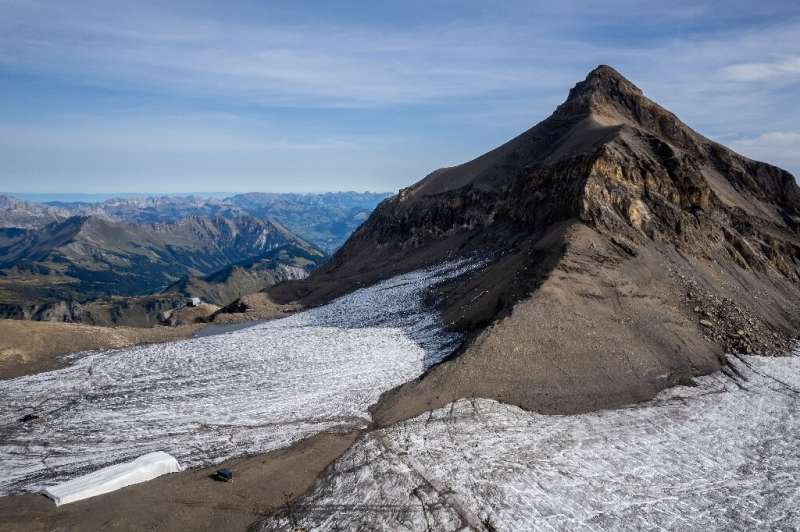In an effort to combat the effects of global warming, the Swiss population is voting on a new climate bill aimed at achieving carbon neutrality by redirecting the country’s energy sources. Switzerland, which has seen its glaciers rapidly melting, is seeking alternative energy options for a greener future.
Recent opinion polls indicate widespread support for this climate bill. If passed, Switzerland will need to reduce its reliance on imported oil and gas and focus on developing and utilizing more sustainable home-grown alternatives. However, the most recent survey by pollster gfs.bern showed a slight decline in support, with 63 percent still in favor. The right-wing Swiss People’s Party (SVP) has raised concerns about the potential negative impact on the economy.
While polling stations opened on Sunday for a few hours, most votes in Switzerland are typically cast in advance due to the country’s direct democratic system. Initial results are expected by mid-afternoon.
Supporters of the proposed “Federal Act on Climate Protection Targets, Innovation and Strengthening Energy Security” argue that it is necessary for both energy security and addressing the consequences of climate change. Glaciers in the Swiss Alps have lost a third of their ice volume between 2001 and 2022, emphasizing the urgency of taking action.
Climate-friendly alternatives
Currently, Switzerland heavily relies on imports for its energy, with oil and natural gas being sourced primarily from abroad. Climate activists initially aimed for a complete ban on oil and gas consumption in the country by 2050. However, the government proposed a counter-plan that focuses on financial support for transitioning to climate-friendly alternatives and promoting green innovation in businesses.

The majority of Switzerland’s major political parties support the climate bill, with the exception of the SVP, which triggered the referendum against it. The SVP argues that achieving carbon neutrality by 2050 would effectively result in a fossil fuel ban that could negatively impact energy access and lead to higher household electricity bills. SVP leader Marco Chiesa criticized the bill, stating that it would significantly raise energy costs while having minimal impact on the global climate.
The World Meteorological Organization (WMO) has warned about the economic impact of melting Alpine glaciers in the short and long term. Natural disasters, loss of tourism revenue, and effects on river systems and hydroelectric power plants are anticipated consequences.
Corporate tax hike
In 2021, the SVP successfully campaigned against a law aiming to reduce greenhouse gas emissions. However, it may face challenges in convincing the public this time. With concerns over energy supply following Russia’s invasion of Ukraine, there is a growing demand for Switzerland to decrease its reliance on foreign energy sources. In addition to the climate bill, the referendum includes a proposal to raise the tax rate for large businesses.
The government aims to modify the constitution to enable Switzerland to join an international agreement, led by the Organisation for Economic Cooperation and Development (OECD), which establishes a global minimum tax rate of 15 percent for multinational corporations. The latest opinion poll indicates that 73 percent of Swiss voters support this plan, which would apply the new rate to Swiss-based companies with a turnover above 750 million euros ($808 million). Currently, Switzerland’s low corporate tax rates in some cantons have been justified as necessary for attracting businesses despite high wages and location costs. The Swiss government estimates that implementing the supplementary tax would generate between 1.0 and 2.5 billion Swiss francs in the first year alone.
© 2023 AFP
Citation:
Amid melting glaciers, Swiss vote on new climate law (2023, June 18)
retrieved 18 June 2023
from https://phys.org/news/2023-06-glaciers-swiss-vote-climate-law-1.html
This document is subject to copyright. Apart from any fair dealing for the purpose of private study or research, no
part may be reproduced without the written permission. The content is provided for information purposes only.



